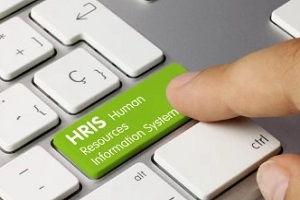Employees are a company’s most important asset. To reward workers for their hard work and dedication, many businesses offer employee benefits packages that include perks like health insurance, retirement, and paid vacation and sick time. Unfortunately, many employees are unaware of what benefits are available to them and how to obtain these benefits.
To prevent employees from missing out on valuable benefits, many companies are rolling out new human resource information systems (HRIS). These software solutions are designed to inform employees about offerings, improve the administration of human resources, increase efficiency, and reduce costs.
Modern HRIS fulfill the functions of traditional systems while offering greater ease and convenience to both employees and HR staff. Learn more about HRIS solutions, how businesses can benefit from having one, when an organization should invest in HRIS, and how New City Insurance can help businesses adopt and roll out benefit administration technologies.
Over a Third of Employees Don’t Know Their Benefits
Most organizations today offer comprehensive benefits packages to attract and keep top talent. However, data shows that many employees do not know about their benefits, do not understand their benefits, or fail to read benefit materials.
According to a recent survey by Voya Financial, 35 percent of employees report that they do not fully understand any of the employee benefits that they enrolled in during the most recent open enrollment period.
There are many reasons that employees struggle with their benefits plans. Benefits can be complex, and many policies include jargon from insurance companies or the IRS code that can be difficult for employees to understand. Many employees are also overwhelmed with benefits, tools and resources that are difficult to use or access.
Nearly Half of Employees Feel Like They Don’t Have Good Benefits and Quit Their Jobs
The job market has gone through many changes over the last few years, with many people choosing to quit their job in search of new and better opportunities. One of the biggest reasons why today’s workforce chooses to leave their current employment deals with benefits.
According to a recent Pew Research Center survey, some of the top reasons that Americans quit their jobs in the last year include feeling disrespected at work, low pay, and a lack of opportunities for advancement.
The survey also revealed that individuals who quit their jobs are now employed elsewhere and are more likely to state that their current job offers better pay, an enhanced work-life balance and more opportunities for advancement.
Research has shown other reasons for quitting, such as a lack of childcare and having to work too many hours. However, 45 percent of employees report leaving their current job due to not having good benefits, such as paid time off and health insurance.
What Is an HRIS
 A human resources information system is used to collect and store data on a company’s employees. These systems typically encompass the basic functionalities required for end-to-end human resources management (HRM) and include various functions for learning, development, recruitment, performance management, and more.
A human resources information system is used to collect and store data on a company’s employees. These systems typically encompass the basic functionalities required for end-to-end human resources management (HRM) and include various functions for learning, development, recruitment, performance management, and more.
HRIS solutions are often adopted by organizations that wish to improve the employee experience and simplify tedious and time-consuming HR tasks. While HRIS is most commonly used by businesses with more than 50 employees, the size of the company does not matter as much as the organization’s intent behind the implementation.
A quality HRIS should be both adaptable and agile. There are certain features that every HRIS should include, such as automation, performance management, onboarding and offboarding, time off, compensation and benefits, payroll, time and attendance, training, recruitment and retention, analytics, and automatic surveys.
With an HRIS, companies can plan their HR-related costs more effectively, as well as better manage and control these expenses without having to allocate too many resources toward them. Businesses in nearly all industries can benefit from adopting a human resource information system. With the amount of time that these systems save business owners and HR professionals, the technology ultimately pays for itself.
Benefits of HRIS to Organizations
HRIS can deliver countless benefits to organizations that help simplify their HR processes and influence their bottom line. Some of these key benefits include:
- Automates Employee Onboarding – How an organization onboards its employees can have a direct impact on talent retention and the overall employee experience. With automated employee onboarding features, businesses can streamline the onboarding process, resulting in greater employee satisfaction.
- Streamlines HR Processes – HRIS solutions enable organizations to streamline their HR processes from a single, centralized system. These systems allow HR teams to recruit, onboard, engage, and manage employees without the use of outdated data management techniques, such as spreadsheets.
- Minimizes Manual Tasks and Errors – HR departments are responsible for performing a wide range of tasks, many of which are tedious and time-consuming. HRIS can help automate functions that would otherwise take hours to complete, such as posting jobs, candidate screening, onboarding and offboarding, applicant tracking, adding employee information, and managing time off. An HRIS can also help reduce the risk of errors or duplicate information.
- Regulated Compliance – Quality HRIS can help businesses maintain legal compliance with local, international, and corporate laws. With an HRIS, businesses can automatically update policies to ensure compliance, while also keeping all information stored securely.
- Increases HR Productivity – HR departments often become overwhelmed with the amount of work they must complete each day, often resulting in burnout. With the advanced capabilities of an HRIS, businesses can support multiple HR functions within a single system, helping HR teams to be more productive.
- Delivers Valuable Insight – HRIS solutions are not just designed for efficiency. These business solutions also provide organizations with analytical insights that allow them to achieve enhanced workforce planning, retention rate, employee experience, and talent acquisition.
When Should an Organization Invest in HRIS
 When businesses grow their workforce, it can be more difficult to track employee information in spreadsheets and other manual forms. Using multiple pieces of software can also be challenging as HR departments are tasked with gathering, tracking, and updating multiple pieces of information for each employee.
When businesses grow their workforce, it can be more difficult to track employee information in spreadsheets and other manual forms. Using multiple pieces of software can also be challenging as HR departments are tasked with gathering, tracking, and updating multiple pieces of information for each employee.
Organizations that implement HRIS often find that these systems free up time to allow HR to focus on other core activities, such as creating a positive workplace culture and employee experience. An HRIS can be advantageous for both HR departments and employees, regardless of business size or industry.
New City Insurance Helps Your Organization Adopt and Rollout Benefit Administration Technologies
While the benefits of implementing a human resource information system are plentiful, many organizations do not know how to get started or if it is possible to upgrade their current system to retrieve these benefits.
It is important to work with a vendor that is knowledgeable about HR processes and offers solutions that provide core functions, a solution that can integrate with any legacy systems, and the best value for the money.
New City Insurance is an experienced employee benefits consulting firm that has helped countless companies connect with the right HRIS system. For assistance in determining which HRIS is best for your business, reach out to one of our knowledgeable employee benefits and HR consultants at New City Insurance today.
